How to determine the right products for your flammable hazard monitoring needs
Today’s flame detectors utilize optical technologies to detect flames. Flames are known to emit electromagnetic radiation in the infrared (IR), visible light, and ultraviolet (UV) wavelengths depending on the fuel source. Because of this, optical flame-sensing technologies have been developed utilizing UV, UV/IR and multi-spectrum infrared. These products rely on line-of-site detection of the radiation emitted in the spectral bands to determine if a flame is real.
Fuel Types
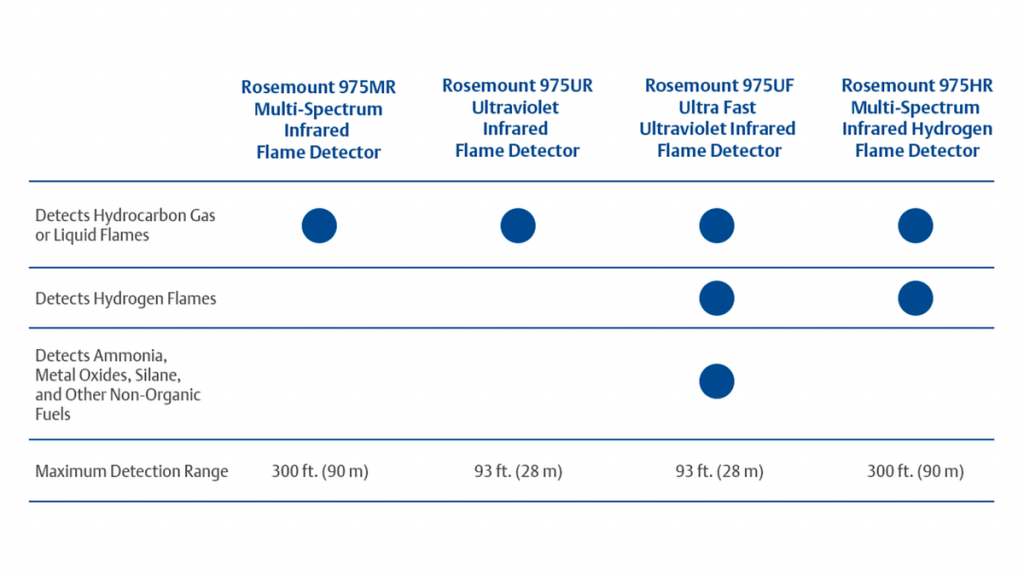
Consider whether the potential flame you are looking to detect will be hydrocarbon based or non-organic. With Hydrocarbon flames, a combination of methane and oxygen produce carbon dioxide and water. This type of fire creates a UV signal reading at 0.2 microns and IR signal reading at 2.7 microns and 4.5 microns. Hydrogen flames only produce water molecules and therefore we do not see the same CO2 peak that a hydrocarbon flame is known to produce.
False Alarm Rejection
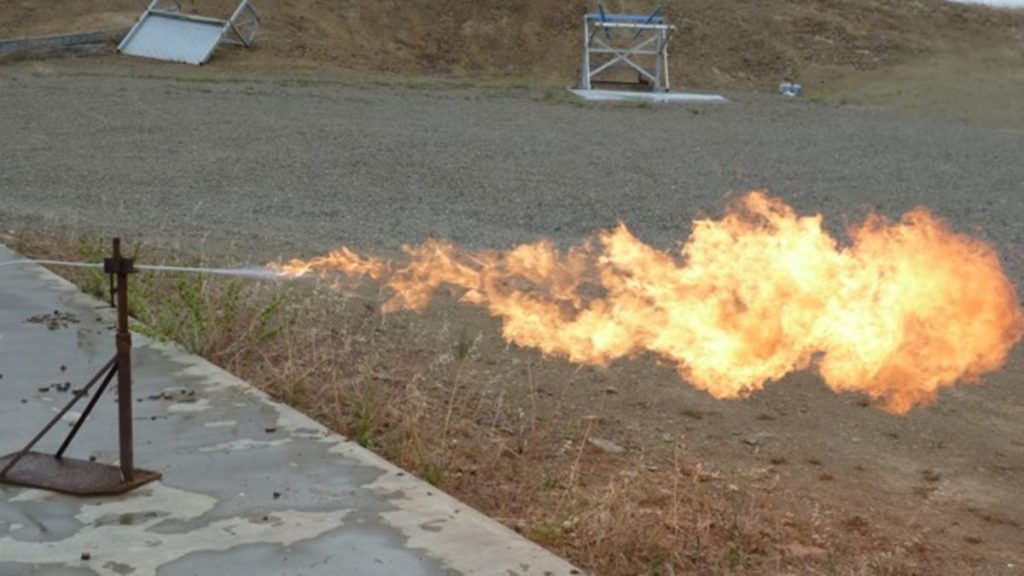
Environmental conditions such as sunlight, lightning, hot objects and other non-flame sources can cause false alarms. It is critical that the flame detector is able to distinguish between an actual fire and a false radiation source.
Detection Range
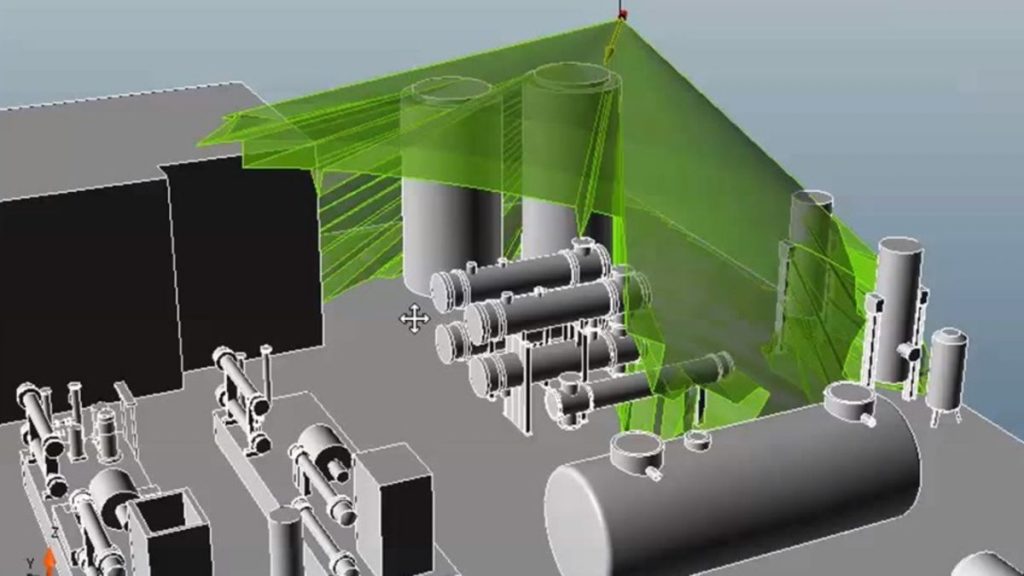
Flame detection technologies effectively recognize a flame at different distances. It is important to utilize a detector that can operate within your required detection range.
Field of View
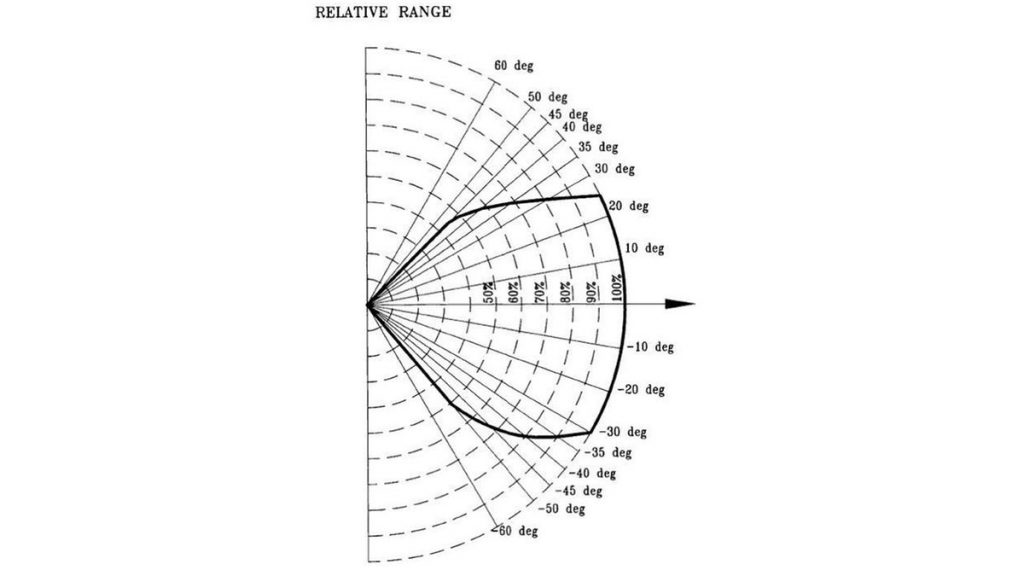
Optical flame detectors come with a “field of view” range, similar to the lens on a camera. Taking the field of view range into account will help determine how many detectors are needed to cover an installation or a specific area within the installation.
Rosemount 975MR Multi-Spectrum Infrared Flame Detector
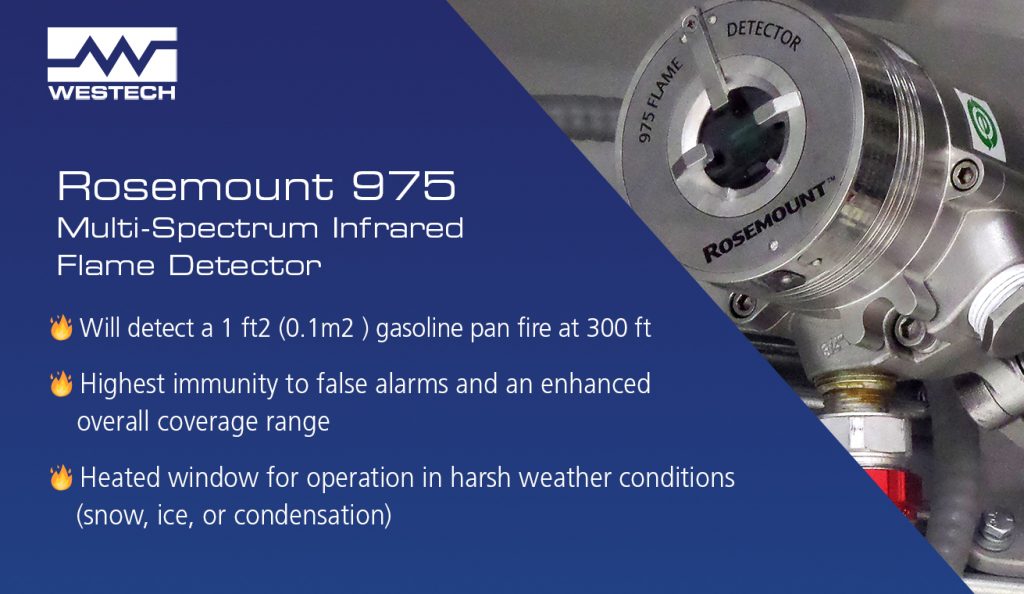
The Rosemount 975MR Multi-Spectrum Infrared Flame Detector is based on accurately analyzing the multispectral signals by utilizing four separate IR sensors. The Rosemount 975MR detects fuel and gas fires at long distances. For example, this product will detect a 1 ft2 (0.1m2 ) gasoline pan fire at 300 ft. (90 m). The Rosemount 975MR also provides the highest immunity to false alarms and enhanced overall coverage range.
Features and Benefits
- Multi spectrum design for long distance detection
- Sensitivity selection to ensure no zone crossover detection
- Automatic and manual Built-In-Test (BIT) to assure continued reliable operation
- Heated window for operation in harsh weather conditions (snow, ice, or condensation)
- Relays (3) for alarm, fault, and auxiliary
- 0–20 mA (stepped)
- HART® protocol for maintenance and asset management
- RS-485, Modbus® compatible
- High reliability – MTBF – minimum 150,000 hours
- Designed to meet Safety Integrity Level SIL3 (TÜV)
- Five-year warranty
- User programmable via HART® or RS-485
Learn More
If you would like to learn more about our Rosemount 975 flame detectors, please visit our website at https://bit.ly/3z3d4ZQ or call to speak to one of our technical representatives at 1-800-912-9262.c
Share This:




 CDN NEWS |
CDN NEWS |  US NEWS
US NEWS 


























Trump Is Scaring Republicans Away From Saving the Planet